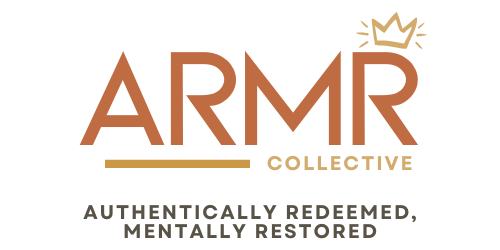There’s a moment every parent experiences: you’re standing in your home, surrounded by baby gear, possibly covered in various bodily fluids, and suddenly you think, “Wait… who am I now?”
I had that moment about three months into motherhood. One day I was a person with hobbies, interests, and a sense of self. The next, I was completely consumed by parenthood. Somewhere between midnight feedings and first steps, I lost track of myself completely – struggling with maintaining identity in parenthood became my daily reality.
As someone who struggled with people-pleasing and had virtually no boundaries, I was the perfect candidate for complete identity erasure when my first child arrived. My tendency to put everyone else’s needs before my own, combined with the overwhelming demands of parenthood, created a perfect storm that washed away nearly every trace of who I used to be. Even my relationship with God, once vibrant and centering, became reduced to desperate prayers for just a little more sleep.
A note before we continue: I recognize that families come in all forms. While I’ll be sharing from my own experience, the core struggles of identity preservation and the strategies for reclaiming yourself apply whether you’re a single parent, co-parenting, widowed, in a partnership, or navigating any other family structure. Where I mention support systems, please substitute whatever support figures might be in your life, even if that’s primarily yourself and your incredible resilience.
Parental Identity Crisis: When Parenthood Consumes Everything
Let me be clear about something that might sound controversial.
Parenthood is not your core identity.
I struggled with this truth. For months after my children were born, I put them above everything – including myself and, if I’m being honest, even above God. I thought this was what good parents did. I wore my exhaustion and self-neglect like badges of honor.
What happened? Every conversation became about the children. My interests, once vibrant and central to my life, became afterthoughts squeezed into fleeting moments between diaper changes. My faith, once a daily practice, was reduced to quick, frantic prayers during challenging moments. And the person I used to be? She seemed to disappear entirely.
The hard truth is that this approach isn’t sustainable – and despite what our culture suggests, it doesn’t actually make you a better parent.
In fact, I believe God calls us to steward our whole selves, not just our parent-selves.
The Guilt Trap
Perhaps the biggest obstacle to maintaining identity is what I call “parent guilt” – that persistent feeling that any time spent on yourself is somehow being stolen from your children.
This guilt creates a no-win situation: when you’re with your kids, you feel guilty about all the things you’re not getting done; when you’re doing something for yourself, you feel guilty for not being with your kids.
It’s a cycle that prevents you from ever feeling fully present anywhere.
I wish I had a quick fix for this, but I don’t. What I can offer is solidarity and perspective. Every morning, I’m excited for my kids to wake up, and then an hour later, I’m counting the minutes until naptime! When I get a chance to do something alone, I feel guilty for leaving, and then when I’m out, I feel guilty for not missing them more!
The best advice I ever received was to treat myself with the same kindness I would offer a friend.
Would you judge your friend for needing a break? For occasionally missing her pre-kid life? Of course not. Extend that same grace to yourself.
Practical Strategies for Maintaining Identity in Parenthood
When we talk about maintaining identity in parenthood, too often the advice assumes you have an extensive support network or financial resources for regular childcare. But what if you’re doing this largely on your own? These strategies for maintaining identity in parenthood have helped me reconnect with myself despite limited time and support:
1. Micro-Moments Matter
Even five uninterrupted minutes can make a difference.
I’ve learned to lower my expectations and embrace truly tiny moments of self-connection:
- A cup of coffee enjoyed while still hot (miracle!)
- Three deep breaths and a face splash with cold water when things get overwhelming
- Reading one page of a book before bed
- Listening to a favorite song while doing dishes
These aren’t luxurious self-care sessions, but strung together, they help maintain a thread of connection to yourself.
2. Integrate Instead of Separate
Rather than viewing your identity as something that exists apart from parenthood (requiring you to physically get away), look for ways to integrate parts of your pre-parent self into your daily life with kids:
- If you loved art, keep simple supplies accessible and sketch alongside your children
- If music was your thing, create playlists you both can enjoy
- If you loved learning, choose topics to explore together
- If nature was your sanctuary, make even brief outdoor time a daily priority
This applies to faith too. Instead of mourning the loss of uninterrupted devotional time, I’ve learned to pray in the shower, listen to worship music during play time, and share age-appropriate Bible stories that renew my own spirit while nurturing theirs.
This integration isn’t the same as dedicated alone time, but it keeps important parts of you alive and present.
3. Lower the Bar, Then Lower It Again
I had to completely redefine what counted as “me time.” Before kids, it might have been an entire day devoted to my interests. Now? Sometimes it’s just wearing headphones and listening to my music while pushing the stroller.
The things that help me feel like myself might only happen for minutes at a time, and that’s okay. Reading just one paragraph of a novel, writing just three sentences in a journal, or doing just five minutes of something that brings you joy still counts.
4. Find Your Non-Negotiable
Identify one small thing that connects you to yourself and make it sacred.
For me, it’s a few minutes with a snack and a coloring book after the kids go to bed. I guard this time fiercely. It’s not elaborate, but it anchors me to both myself and God after a busy day.
Your non-negotiable might be a quick shower every day, five minutes of scripture reading, prayer time during your commute, or a brief walk around the block.
Whatever it is, consider it as essential as feeding your children—because maintaining your sense of self and your spiritual life is not a luxury.
5. Reframe Mundane Moments
Some of the most effective identity preservation happens not by adding more to your schedule, but by bringing more consciousness to what you’re already doing:
- Turn shower time into a mini mental vacation with intentional breathing
- Use driving time (even with kids in the back) to listen to podcasts or audiobooks that feed your mind
- Transform routine chores by adding music that moves you
- Use bedtime routines to connect with parts of yourself (reading books you enjoy to your children, for example)
6. Challenge the Narrative
When I feel guilty for needing space, I remind myself that modeling healthy identity maintenance actually benefits my children. They need to see that adulthood isn’t just endless self-sacrifice. They need to learn that all humans require renewal.
I often think about how Jesus would sometimes withdraw to quiet places to pray, even when crowds were searching for him. That wasn’t selfishness—it was necessary replenishment. If Jesus needed time to reconnect with Himself and with God, so do we.
Every time you honor your own needs, you’re teaching your children an essential life skill they’ll need someday, and you’re living out a biblical example of self-stewardship.
A Different Kind of Present
Kids grow incredibly fast. Everyone tells you this, but you don’t really understand until you’re watching it happen before your eyes. This is why, despite all the challenges, it’s worth trying to stay present—even during the hard moments.
But being present doesn’t mean losing yourself in the process.
True presence requires bringing your whole self to the moment—not just the parent part, but all the other aspects that make you uniquely you.
I’m not suggesting you cherish every tantrum or meltdown. But I am suggesting that there’s value in fully experiencing this season while maintaining a connection to your core self.
The Reality Check
Sometimes when I talk about maintaining identity in parenthood, people say, “That’s nice, but not realistic.” And there’s truth there—the early years of parenthood are incredibly consuming, and if you’re doing it with minimal support, it can feel impossible to maintain any sense of self.
If you’re in that season right now, please know this: simply recognizing the importance of your identity is a powerful first step. Even if all you can do is hold space in your heart for the understanding that you still exist beyond your role as a parent, that awareness matters.
In my hardest parenting moments, I’ve found comfort in remembering that God sees me fully—not just as a mother, but as the complete person He created me to be.
When I feel invisible or completely subsumed by motherhood, that knowledge grounds me: I am seen and known, even when I feel lost.
Your capacity to maintain connection with yourself will expand as your children grow. The thread might be thin right now, but don’t let it break completely. Keep reaching for those micro-moments. Keep remembering who you are.
You are not just a parent. You’re a beloved child of God with unique gifts and purpose.
You have never stopped being you—even when it feels that way.
A Promise
The journey of maintaining identity in parenthood isn’t easy, and I won’t pretend it is. There will be days when you feel completely lost in the demands of parenthood. Days when you can’t remember the last time you felt like yourself. Days when you wonder if you’ll ever reclaim the parts of you that seem to have vanished. Days when God feels as distant as your pre-parent self.
But I promise you this: with intention and persistence, you can maintain a thread of connection to yourself through even the most demanding seasons of parenthood. And that thread, however thin, will eventually lead you back to a fuller expression of who you are.
Not despite being a parent, but alongside it. And in the journey, know that God sees you completely – both as a parent and as the unique person He created you to be, with gifts, passions and purpose that didn’t disappear when your children arrived.
Remember that Jesus himself took time away to pray, even when needs were pressing in from all sides. If the Savior of the world needed moments to reconnect with His Father and Himself, how much more do we need those moments? Your relationship with God and the care of your identity aren’t selfish indulgences—they’re essential acts of stewardship.



